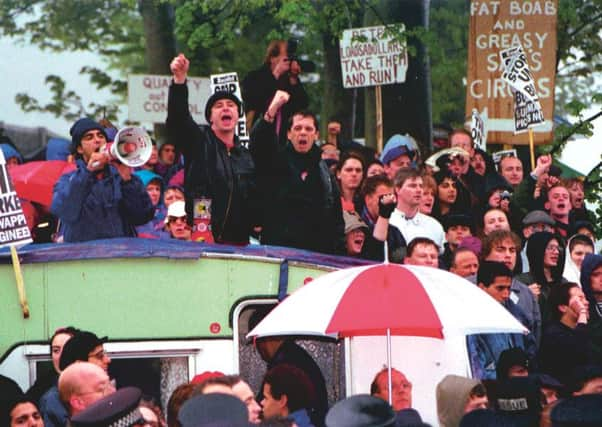Leader: Undercover police probe helps to restore trust


Whether it’s an operation to target drug traffickers or a plan to ensure security remains tight during major events such as political summits, there are a range of circumstances in which we would expect investigators to work incognito.
But accepting that undercover police work is legitimate and, at times, entirely necessary requires on the part of the public a degree of trust.
Advertisement
Hide AdAdvertisement
Hide AdThe very nature of this type of work means that it – and the decisions that inform it – happen behind a wall secrecy.
The public can only hope that those who order and carry out undercover operations do so only when absolutely necessary. If this is not so, then the danger of injustice hangs heavy over matters.
Given the very real concern that the highest standards were not always met, campaigners have asked for a full public inquiry into undercover policing in Scotland.
Earlier this year, Justice Secretary Michael Matheson rejected calls for a public inquiry into undercover policing after the Home Office refused to extend the remit of a judge-led inquiry in England to include Scotland.
We continue to believe this was the correct decision. Such a step – without hard allegations at this time – would amount to little more than a fishing expedition.
But we will await with interest the findings of an investigation into the roles played by undercover police in political disputes such as the miners’ strike and the anti-poll tax campaign.
Researchers, using legal aid funding, are looking at whether police surveillance extended to disputes such as the 1993 Timex strike in Dundee and the attempt by the so-called “Pollok Free State” to block construction of the M77 motorway in Glasgow.
Campaigners hope their findings will assist them in a bid to force the reversal of the Scottish Government’s decision.
Advertisement
Hide AdAdvertisement
Hide AdIf the current investigations concludes with credible allegations of inappropriate behaviour by officers then there may well be a case for them to have their way and for an inquiry to be scheduled.
If no specific claims of wrongdoing are levelled, that will not mean this is a matter that can be quickly forgotten.
We know from cases south of the Border that undercover officers have, in the past, smashed through professional boundaries, in some cases forming relationships with those they are being paid to spy on.
If nothing else comes from this controversy, let us hope that – at the very least – the light that has been shone on the mistakes of the past will help to ensure that the highest standards are upheld by all officers involved in future undercover work.